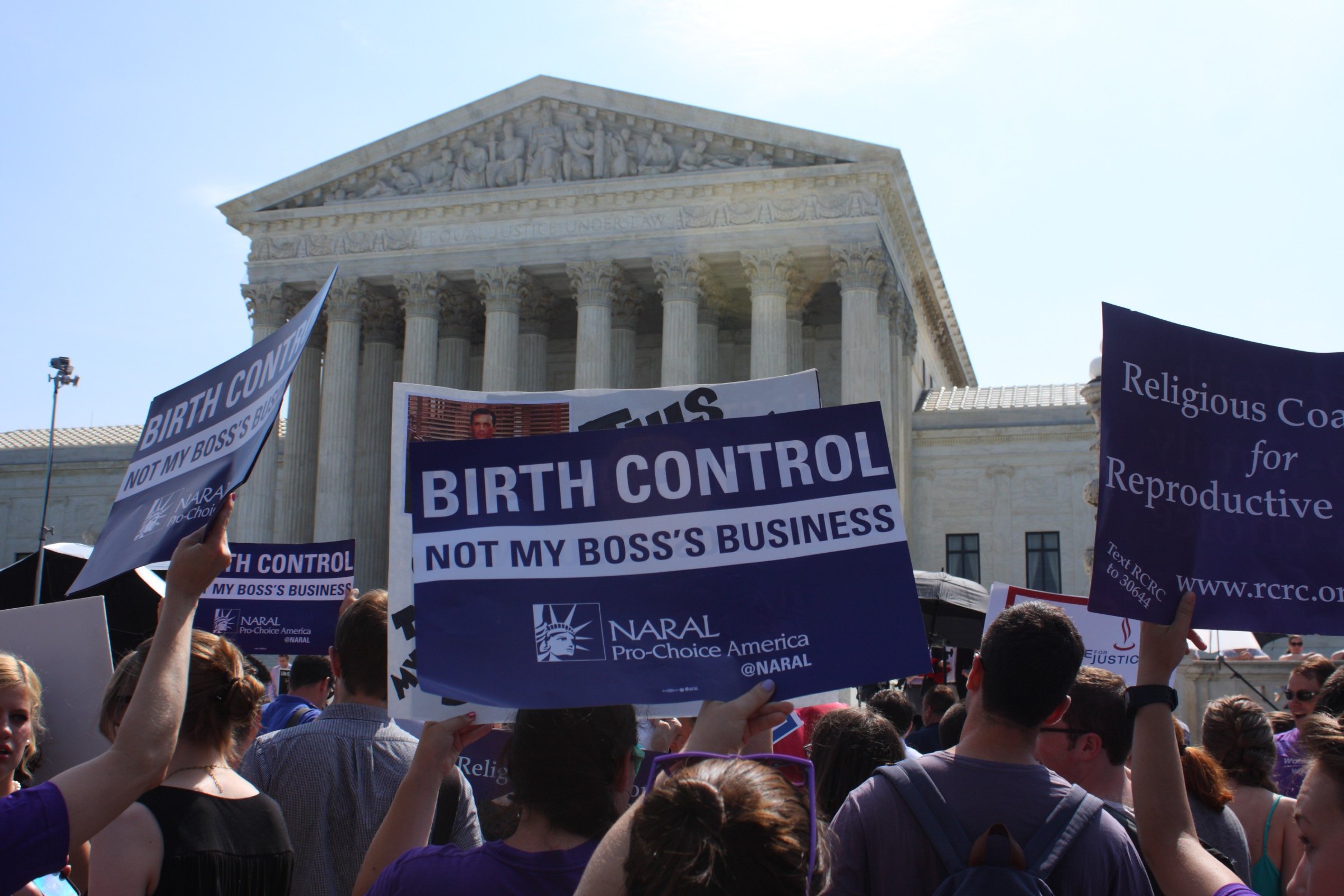
In ruling that “closely-held” corporations can opt out of the Affordable Care Act obligation to pay for employees’ contraception on religious grounds, the Supreme Court majority handed down a decision that could have been tailored to the Green family, the ultra-religious owners of Hobby Lobby, who brought the case.
But the fact that the Greens brought this case is also, in a way, a relief to those who oppose the ruling. That’s because the Greens enabled the court to avoid a much broader ruling that all corporations could be exempted, if they could lay authentic claim to holding religious anti-contraception views– or, to put it bluntly, that any corporation could sidestep various government regulations by claiming faith.
Five members of the Green family appear to be the only shareholders in Hobby Lobby, a big-box crafts chain with a reported 28,000 employees, who will presumably soon be looking for some other way to afford certain kinds of contraception. Two years ago, about 18 or 19 members of the family voted unanimously to become plaintiffs in this case. Although the whole Green family no longer belongs, as the company’s founding generation did, to one extremely conservative Pentecostal denomination (The Church of God of Prophecy) that used to strongly discourage its members from gathering in sinful locales like bowling alleys, the Greens remain extremely traditional Protestants, who believe that their reading of the 139th Psalm and other biblical passages makes it impossible for them to participate in their employees’ use of I.U.D.s and morning-after pills.
How Christian is Hobby Lobby? Its Muzak is spiced with hymns. Some of its corporate meetings begin with prayer. It employs chaplains who evangelize not only to nominal Christians, but also to non-believing workers. More substantively, it gives employees Sundays off as church-and-family days, and pays more than twice the Oklahoma minimum wage to entry-level workers on Christian grounds. According to David Green, Hobby Lobby’s founder, and his son Steve, its President, the company also gives away roughly half its earnings, which would come to over $50 million a year– and make it something close to a steroidal Christian charity.
In other words, the company is about as Christian as it is possible for a corporation to get, which was essential in convincing the courts that some corporations could be considered “persons” protected by the 1993 law, the Religious Freedom Restoration Act.
But it also enabled—indeed, invited—the Supreme Court to avoid ruling that non closely-held corporations, which is to say most of them, have any religious rights, and to rule out some of the more controversial claims even by closely-held businesses. As Justice Samuel Alito wrote in the majority opinion, “the idea that unrelated shareholders—including institutional investors with their own set of stakeholders—would agree to run a corporation under the same religious beliefs seems improbable. In any event, we have no occasion in these cases to consider RFRA’s applicability to such companies. ” He continues, “This decision concerns only the contraceptive mandate and should not be understood to hold that all insurance-coverage mandates, e.g. for vaccinations or blood transfusions, must necessarily fall if they conflict with an employer’s religious beliefs…Nor does it provide a shield for employers who might cloak illegal discrimination as a religious practice.”
None of these qualifications were on the Greens’ wish list.
Would Alito have come to the same conclusions if the plaintiffs in the case had been less like Hobby Lobby and more like General Motors? Perhaps. But having the example of the Greens in front of him made it easy. That’s not to say that the category represented by Hobby Lobby is chickenfeed. Even before the ruling, 46 for-profit companies had sued for exemption on religious grounds. Overtly religious, closely held companies appear to be a growing sector, and includes such giants as the $ 4 billion dollar fast-food chain Chick-Fil-A, In-N-Out Burger, and the clothing country Forever 21. Thus before the dust has cleared, it would not be surprising if over a hundred thousand employees found themselves looking for new providers for contraception. And the Religious Right can justifiably say that the Court has handed down a victory for their definition of religious freedom.
But one could also say that the very religiosity of the Greens may have helped prevent this from being the huge ruling on whether corporations can be religious that some analysts had expected. The various parties who oppose the ruling have reason to be grateful for the Oklahoma family’s extravagantly expressed faith.
More Must-Reads From TIME
- The 100 Most Influential People of 2024
- The Revolution of Yulia Navalnaya
- 6 Compliments That Land Every Time
- What's the Deal With the Bitcoin Halving?
- If You're Dating Right Now , You're Brave: Column
- The AI That Could Heal a Divided Internet
- Fallout Is a Brilliant Model for the Future of Video Game Adaptations
- Want Weekly Recs on What to Watch, Read, and More? Sign Up for Worth Your Time
Contact us at letters@time.com